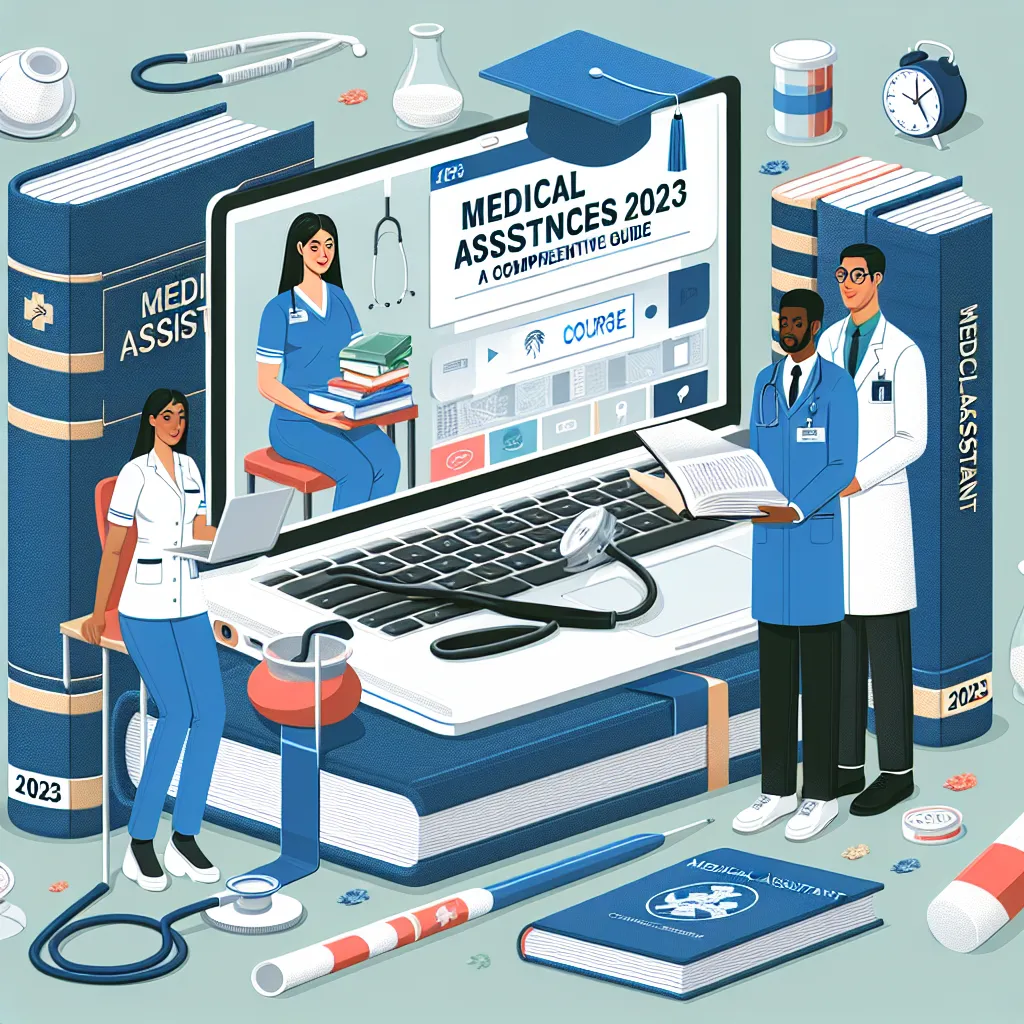Medical Assistant Courses 2023: A Comprehensive Guide
Medical Assistant Courses 2023: A Comprehensive Guide
Are you considering a career as a medical assistant? With the healthcare industry constantly evolving, it’s essential to stay updated on the latest trends and educational opportunities. In this guide, we will explore the medical assistant courses available in 2023 and how they can help you kickstart your career in healthcare.
1. Introduction to Medical Assisting
Before delving into specific courses, it’s crucial to understand the role of a medical assistant. Medical assistants play a vital role in healthcare facilities, performing a diverse range of administrative and clinical tasks. They assist physicians, interact with patients, and ensure the smooth functioning of healthcare settings.
A career as a medical assistant offers stability, growth opportunities, and the chance to make a positive impact on patients’ lives. Whether you are just starting your journey or looking to enhance your existing skills, enrolling in medical assistant courses can provide you with the necessary knowledge and expertise.
2. Core Courses for Medical Assistants
Medical assistant courses cover a wide array of topics, including medical terminology, anatomy and physiology, pharmacology, medical billing and coding, and medical ethics. These core courses serve as the foundation for a successful career in medical assisting.
a) Medical Terminology
A thorough understanding of medical terminology is essential for effective communication in healthcare settings. This course introduces students to the language of medicine, teaching them the meaning and usage of medical terms, abbreviations, and symbols commonly used in medical records and conversations.
b) Anatomy and Physiology
Anatomy and physiology courses provide students with an in-depth understanding of the structure and functions of the human body. This knowledge is crucial for medical assistants to comprehend diseases, diagnoses, and treatment procedures. Students learn about different body systems, organs, and their interconnections.
c) Pharmacology
Pharmacology courses focus on the study of drugs, their uses, side effects, and interactions. Medical assistants need to be familiar with common medications and their administration methods. This course equips them with the knowledge to assist physicians in medication management and patient education.

d) Medical Billing and Coding
Medical billing and coding courses prepare medical assistants to handle the administrative aspects of healthcare, such as insurance claims and coding procedures. Students learn about medical billing software, insurance terminology, and reimbursement processes. Proficiency in medical billing and coding ensures accurate documentation and efficient financial transactions.
e) Medical Ethics
Medical ethics courses address the ethical dilemmas and responsibilities faced by healthcare professionals. Medical assistants learn about patient confidentiality, informed consent, and ethical decision-making. Understanding medical ethics helps medical assistants maintain professionalism and ensure patient trust and confidentiality.
3. Specialized Courses for Medical Assistants
In addition to the core courses, medical assistants can opt for specialized courses to enhance their skills and expand their career opportunities. These courses focus on specific areas within medical assisting, such as phlebotomy, electrocardiography (ECG), and medical office management.
a) Phlebotomy
Phlebotomy courses train medical assistants in the collection and handling of blood samples. Students learn different blood-drawing techniques, safety protocols, and proper specimen storage. This specialized skill is in high demand in various healthcare settings, including hospitals, laboratories, and blood banks.
b) Electrocardiography (ECG)
ECG courses teach medical assistants how to perform electrocardiograms, which measure the electrical activity of the heart. Students learn about ECG equipment, interpretation of results, and identifying abnormalities. This skill is particularly valuable in cardiology clinics and hospitals.
c) Medical Office Management
Medical office management courses focus on the administrative aspects of running a medical facility. Students learn about appointment scheduling, patient registration, medical record management, and healthcare software. This course equips medical assistants with the skills to efficiently manage front-office operations.
4. Online vs. In-person Courses
When considering medical assistant courses, you may have the option to choose between online and in-person classes. Both formats have their advantages and limitations, so it’s important to evaluate your learning style and preferences.
Online courses offer flexibility, allowing you to study at your own pace and from the comfort of your home. They are ideal for individuals with busy schedules or those who prefer a self-paced learning environment. However, online courses may require strong self-discipline and motivation to stay on track.
In-person courses, on the other hand, provide face-to-face interaction with instructors and fellow students. This format allows for immediate clarification of doubts and hands-on practice. In-person courses are often offered by vocational schools, community colleges, or healthcare training centers.
5. Certification and Career Opportunities
After completing your medical assistant courses, obtaining certification can significantly enhance your career prospects. Several organizations offer certifications for medical assistants, such as the Certified Medical Assistant (CMA) certification by the American Association of Medical Assistants (AAMA) and the Registered Medical Assistant (RMA) certification by the American Medical Technologists (AMT).
Certification validates your knowledge and skills as a medical assistant, making you more competitive in the job market. It also demonstrates your commitment to continuous learning and professional development. Many employers prefer to hire certified medical assistants, and certification may lead to higher salaries and increased job opportunities.
As a certified medical assistant, you can work in various healthcare settings, including hospitals, clinics, physicians’ offices, and long-term care facilities. You may also choose to specialize in areas such as pediatrics, dermatology, or cardiology, depending on your interests and career goals.
6. Conclusion
With the healthcare industry evolving rapidly, medical assistants play a crucial role in providing quality patient care. By enrolling in medical assistant courses in 2023, you can acquire the necessary knowledge and skills to excel in this rewarding profession.
Whether you choose the core courses to establish a strong foundation or specialize in a specific area, the comprehensive education provided by these courses can open doors to numerous career opportunities. Don’t miss out on the chance to pursue a fulfilling career as a medical assistant.
